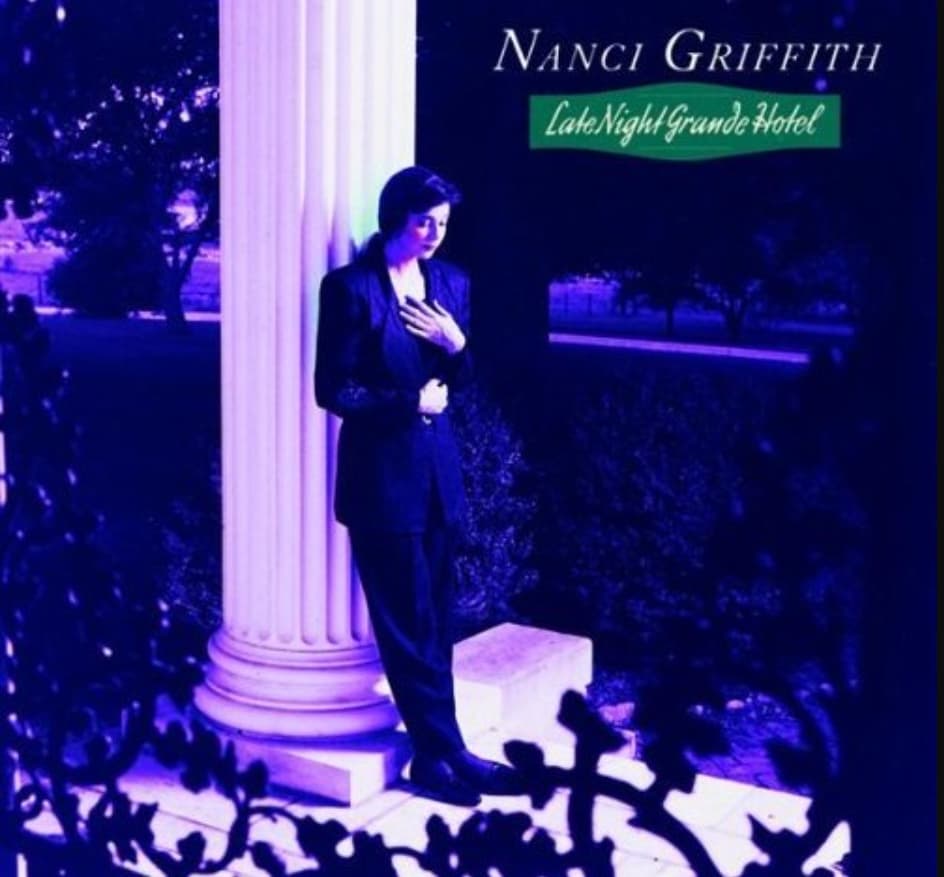
The ballad of the anonymous traveler seeking solace in a temporary sanctuary.
There are certain songs that don’t just ask to be heard, they ask to be lived—and Nanci Griffith’s exquisite title track, “Late Night Grande Hotel,” is one such masterpiece. Released in September 1991 on the album of the same name, this song, and its parent album, marked a subtle but noticeable shift in Griffith’s musical landscape. While the album, Late Night Grande Hotel, reached number 40 on the UK Official Albums Chart and peaked at number 185 on the US Billboard 200 (a modest showing that belies its lasting emotional resonance), the single itself did not register on the main singles charts in the US, UK, or Ireland, a fate often reserved for the most introspective, literary ballads. It found its true home on college radio and in the quiet collections of dedicated listeners who valued lyrical depth over fleeting popularity.
The story behind the song is woven from the familiar fabric of a touring artist’s life: the constant motion, the anonymous spaces, and the deep, often unexpected, pangs of loneliness that set in once the house lights dim. Nanci Griffith possessed a unique gift for turning her observations into vivid, cinematic folk narratives, and “Late Night Grande Hotel” is perhaps the pinnacle of that craft. It’s a testament to the fact that even in the modern, somewhat sterile environment of a “Grande Hotel,” the human heart still carries the ancient burdens of solitude and yearning.
The meaning of the song lies in its exploration of transience and unfulfilled connection. The hotel is more than just a place to sleep; it’s a liminal space, a purgatory of polished chrome and plush carpet where lives intersect fleetingly before moving on. The “late night” setting amplifies the feeling of isolation—that particular kind of quiet that descends when the city is asleep and only the long-distance travelers are awake, staring at the ceiling and contemplating the distance between where they are and where they wish to be. The narrator of the song is observant, a storyteller noticing the small, telling details: the “bellman in his tired suit,” the “room service tray,” the woman with the “face that time won’t erase.” Each detail is a short story in itself, a reflection on a life glimpsed momentarily. This is the writer’s eye at its sharpest, drawing profound meaning from the seemingly mundane.
The shift in production for the Late Night Grande Hotel album, helmed by Peter Van Hooke and Rod Argent, gave the song a slightly more polished, country-pop feel, leaning into richer orchestration than her earlier, purer folk work. Yet, this gentle expansion of sound never overshadowed the raw emotional core of Griffith’s Texas-rooted songwriting. The arrangement, with its wistful piano and gentle strings, acts as a velvet curtain for her soft, clear vocal delivery, which manages to convey both vulnerability and strength simultaneously. It’s a gorgeous marriage of sound and text, perfectly capturing the midnight melancholy.
For those of us who came of age with her music, listening to Nanci Griffith’s voice now evokes an intense wave of nostalgia—a remembrance of a time when music felt more personal, more like receiving a handwritten letter from an articulate, empathetic friend. “Late Night Grande Hotel” is a quiet beacon for anyone who has ever felt like an outsider looking in, or a traveler resting between destinations, forever carrying the ghost of a hometown or a past love in their weary suitcase. It reminds us that our shared human experience of longing is universal, and sometimes, the most poignant stories are found not in grand pronouncements, but in the hush of a nearly empty hotel lobby at 2:00 AM. It’s a perfect song for a quiet reflection at the end of a long journey, be it literal or spiritual.